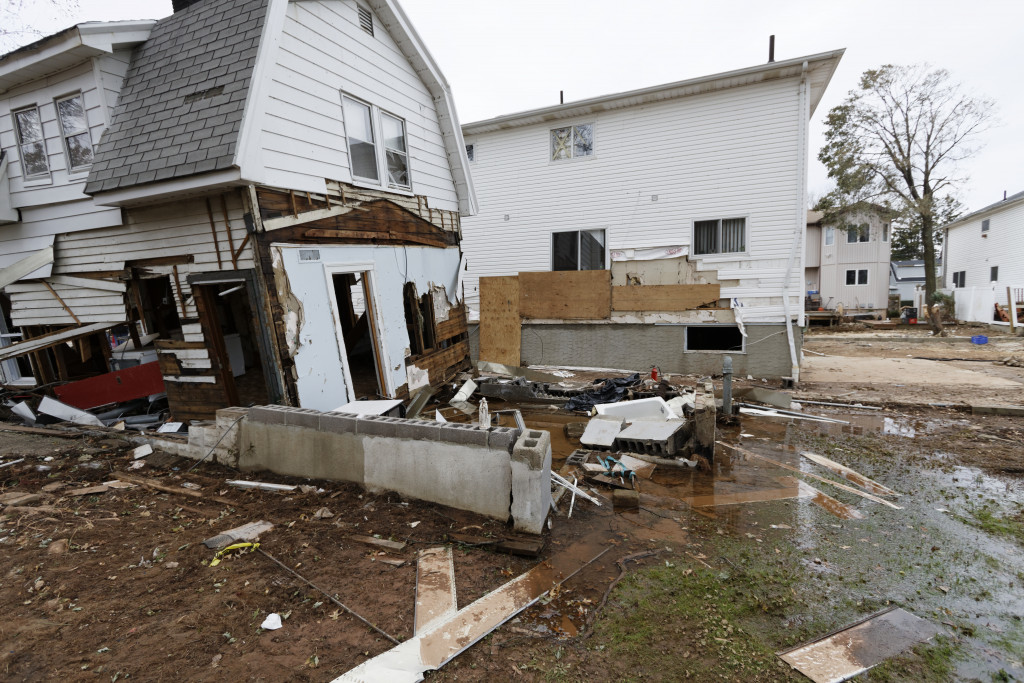The northeast of the United States was battered by Hurricane Ida. The storm brought strong winds and extreme rainfall, resulting in flooding in New York, New Jersey, Pennsylvania, Maryland, and Connecticut.
After the extreme weather event, dozens have been reported dead, and more have been displaced. While residents have been warned about higher than normal amounts of rainfall, no one expected the storm to cause so much devastation.
Now that the Ida has left, people are returning to their homes, trying to salvage belongings that can still be used as they try to rebuild their life.
However, experts encourage homeowners to be cautious when re-entering their flooded homes.
It is understandable to be eager to start rehabilitation of your home after flood damage. Franchises can help you clean up and restore your property into its original state. However, there are a few things that you first must do to ensure your and your family’s safety.
Call an Electrician
Electrocution is a real threat during and after the flood. Water is a great conductor of electricity. Flood water can become electrically charged if it has engulfed electrical devices or has risen higher than electrical outlets.
If flooding is expected, homeowners should turn off the power inside their homes while the floor is still dry. It is not a good idea to be in proximity with electricity while standing in water.
Homes that regularly experience flooding, especially those in coastal areas, should also have ground fault circuit interrupter (GFCI) electrical outlets installed. GFCI outlets have been required in bathrooms for years, but they can also be used throughout the home. GFCI outlets can automatically cut off the flow of electricity in the event of a flood.
After the flood, homeowners should turn off power at the breaker box only if they can stand on a dry surface. If, for example, there is still water where the breaker box is located, do not touch the breaker box. Let a professional handle it to prevent electrocution.
Do not touch any electrical appliance that has been exposed to water. Most importantly, do not plug anything into the electrical outlet. Allow an electrician to assess the electrical system in your home.

Assume You Have Mold
Flooding can create the perfect environment for mold to proliferate. After the storm has passed and the water has receded, homeowners should let their homes dry as soon as possible. Open the doors and windows to aid in the removal of the moisture. If you have dehumidifiers and fans, you can use those, too.
You can use the wet-dry shop vacuum or the vacuum function of a carpet steam cleaner to remove water from the floor. However, do this after an electrician has declared the electrical system safe to use. And, you still have to wear boots to avoid electrocution.
HVAC) system checked for the presence of mold before you turn it back on. Mold exposure can cause respiratory symptoms, including sneezing and coughing or wheezing.
Homes that have been closed and abandoned for several weeks likely already have mold. Open the doors and windows to let the stale air that might be contaminated with mold spores — an allergen, out and fresh air in. Contact a mold removal service to get rid of all growths in your home.
Drink Clean Water
Unfortunately, floods can also contaminate drinking water. The water flowing out of your tap might not be safe to consume yet. It is best to purchase bottled water or boil/treat tap water for drinking, washing your hands, preparing food, brushing your teeth, and cleaning the dishes.
Throw Away Uneaten Food
Any food that has been in contact with the floodwater should be thrown away. Flood water is unsafe. Therefore, anything that it has touched should no longer be consumed.
Any perishable goods that have been left inside the refrigerator after several hours or days without electricity should also be disposed of. If it looks, smells, feels, and tastes weird, the general rule is that it probably has gone bad.
Food that has been exposed to flood water or not been stored properly can make you sick. Throw it away if you are unsure that it is still safe to eat.
Experts said that, decades ago, Hurricane Ida would be considered a rare weather event. Nowadays, because of climate change, storms with the same strength are regular occurrences. Homeowners across the nation should be aware of what they need to do after a flood.

